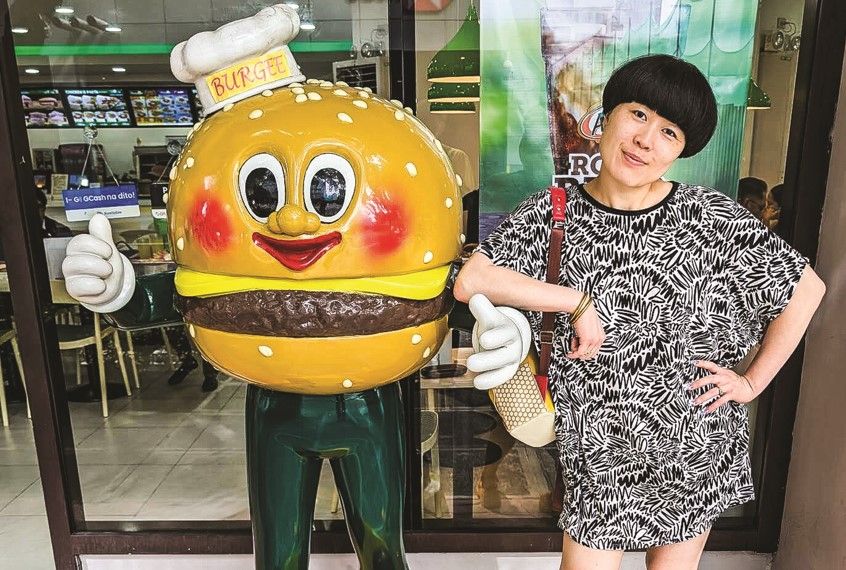The convenience of konbinis
Laughing out loud with Atsuko Okatsuka and issues with kobinis
A sudden thunderstorm couldn’t keep Tokyo’s comedy fans away from Atsuko Okatsuka’s show in Ginza’s Hulic Hall on July 16. Okatsuka was back in Tokyo this week for another run of her Full Grown tour in Japan and other new stops in Asia and Oceania. Fresh from her three, sold out shows in Manila, Okatsuka made it known to the crowd how it went down in the Philippines. As she looked for Filipinos in her Tokyo audience, screams came from the crowd, including the very front row already giggling even before she began.
“Filipinos, they laugh their lives depend on it,” she said. “Japan, you’re good but Filipinos? They laugh like Americans. Americans laugh like there’s no health care.”

The Japanese-Taiwanese comedian is arguably one of the most recognizable in her industry and it’s not just because of her signature bowl cut. Personally, I first encountered Okatsuka online, happening upon a part of her act where she was talking about some of her white friends having one new thing they can’t eat every time she sees them. Gluten, dairy… the list is endless and they like to report it. After a posting in Europe where allergies were taken quite seriously, a stark contrast to my more Spartan childhood in Manila where my grandmother’s reaction to allergies is exposure therapy, this joke hit pretty close to home.
“My grandma can’t eat gluten anymore,” Okatsuka said, deadpan in the video. “Did you know? That immigrants can get this?” At that point, she had me laughing out loud and by the time she said that she thought it only happened to white people because she thought “that white people might still be evolving,” she had me in stitches. I was an instant fan.
Okatsuka’s comedy is intelligent, sharp, and often rooted in her unique cross-cultural experiences. During her show in Tokyo, she effortlessly wove personal anecdotes with broader observations about society, race, and family. The result was a performance that felt both intimate and universally relatable.
“It’s only weirdos that come to my show,” Okatsuka said during her set. “There are no pro-athletes here.” And she’s right. It’s the people who needed to have a personality, the people who learned to cope with trauma by being funny, and the ones who embrace their quirks who come to her show. Life is already hard to deal with, but thankfully, there are people like Okatsuka who can poke fun at its absurdities. Her humor reminds us that laughter is not just a reaction, but a way to connect, heal, and find common ground in our shared human experience.
Japanese convenience stores
A quip that has become rather trite, especially among those who talk about life in Japan, is how the country seems to be living in the future. One of the most frequently cited examples? The ubiquitous convenience stores, or konbini, dotting every corner of Japanese streets.
Don’t get me wrong—konbinis are fantastic. They are open 24/7, offer an impressive array of products, and provide services that go well beyond what you might expect from stores elsewhere.
Popular online are the 7-11 smoothie blenders customers operate themselves. Sure, the technology is pretty convenient. The blender has a scanner that knows the amount of sugar syrup it will add and how long it must blend the frozen fruits and veggies to make a smoothie. It’s a neat trick, but to overly hype it as something that might come from “2050” or the future seems a tad patronizing.
Konbinis do excel in efficiency and practicality. The smartly wrapped onigiri, ready-to-eat bento boxes, and hot drinks available on chilly mornings are delightful. The ability to print, ship packages, and even buy concert tickets at these stores is incredibly useful. It’s a level of convenience that many people, myself included, find indispensable. Consider the microwaveable meals that are perfectly portioned and delicious. In many countries, ready meals are seen as a last resort, a compromise on quality and nutrition. In Japan, they are a staple that’s often praised for their taste and balance. It’s certainly impressive but “the oohing and ahhing gets a little too much sometimes,” a Japanese friend confessed. “I find it awkward when a foreigner only talks about konbinis and toilets to me after visiting Japan. I think we’re more than that.”
It’s easy to romanticize things that are different from what we’re used to, and kobinis are no exception. Calling them harbingers of the future overlooks the fact that many of their best features are simply well-executed solutions to everyday problems. They’re brilliant in their own right, but they are not necessarily indicative of a leap in technological advancement that the rest of the world will need decades to catch up to. When we look at these conveniences and declare them futuristic, we might also be missing the point. What makes them remarkable is not just their technology, but their thoughtful design and understanding of consumer needs. It’s the little things, like the perfectly wrapped sandwich that doesn’t fall apart or the fact that you can find just about anything you need at any hour.
So yes, let’s appreciate the efficiency, the cleanliness, and the overall experience of Japanese konbini. Let’s enjoy the blenders that whip up a smoothie in no time, the shelves stocked with everything from stationery to fresh food, and the friendly staff who make it all run smoothly. But—again—let’s not be patronizing.
In celebrating the convenience of Japanese convenience stores, let’s do so with the recognition that what we are really praising is the ingenuity and dedication to quality. It’s a reminder that the future shouldn’t just be about flashy technology, but about making life a little bit easier and a lot more pleasant for everyone. Something Japan is also really good at.